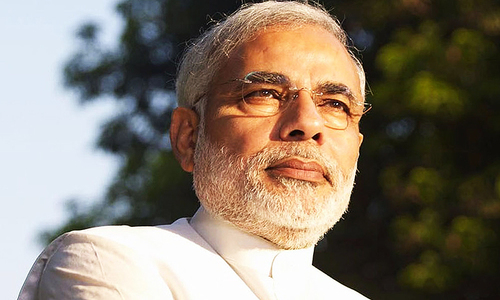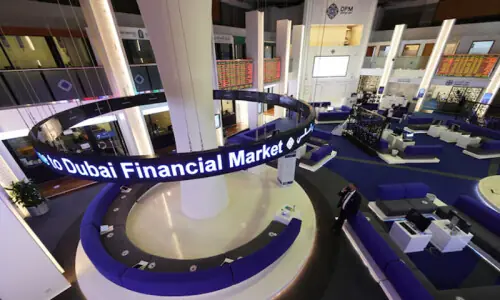Saudi Arabia said on Monday two of its oil tankers were sabotaged off the coast of the United Arab Emirates (UAE) in attacks that caused “significant damage” to the vessels ─ one of them as it was en route to pick up Saudi oil to take to the United States.
The announcement by the kingdom's energy minister, Khalid al-Falih, came as the US issued a new warning to sailors, and the UAE's regional allies condemned the reported sabotage Sunday of four ships off the coast of the port city of Fujairah.
The statement came just hours after Iranian and Lebanese media outlets aired false reports of explosions at the city's port.
Shortly after the Saudi announcement, Iran's Foreign Ministry called for further clarification about what exactly happened with the Saudi tankers.
The ministry' spokesman, Abbas Mousavi, was quoted by the official IRNA news agency as saying there should be more information about the incident.
Mousavi also warned against any “conspiracy orchestrated by ill-wishers” and “adventurism by foreigners” to undermine the maritime region's stability and security.
How it happened
In his statement, Saudi energy minister al-Falih said the attacks on the two tankers happened at 6am on Sunday.
“One of the two vessels was on its way to be loaded with Saudi crude oil from the port of Ras Tanura, to be delivered to Saudi Aramco's customers in the United States,” al-Falih said.
“Fortunately, the attack didn't lead to any casualties or oil spill; however, it caused significant damage to the structures of the two vessels.”
Saudi Arabia did not identify the vessels involved, nor did it say whom it suspected of carrying out the alleged sabotage.
Emirati officials have declined to elaborate on the nature of the sabotage or say who might have been responsible, but a statement issued by the UAE's Foreign Ministry on Sunday put the ships near the country's territorial waters in the Gulf of Oman, east of the port of Fujairah.
It said it was investigating “in cooperation with local and international bodies.”
It said there were “no injuries or fatalities on board the vessels” and “no spillage of harmful chemicals or fuel.”
The US Navy's 5th Fleet, which oversees the region, did not immediately offer comment.
Emirati officials declined to answer questions from The Associated Press, saying their investigation is ongoing.
US-Iran wrangle
The US has alleged that “Iran or its proxies” could be plotting to target maritime traffic in the region ─ a claim that has been met with scepticism in numerous quarters, with leading US Democratic lawmakers fearing that President Donald Trump's administration is seeking to spark a war with Iran.
Tensions in the region have risen since US President Donald Trump withdrew the US from the 2015 nuclear deal between Iran and world powers, restoring American sanctions that have pushed Iran's economy into crisis.
The US on May 2, ostensibly as a way to pressure importers to stop buying oil from Tehran, ended the six-month waivers exempting several countries including major importer China, with whom the US is currently involved in a trade tussle — from unilateral US sanctions on Iranian oil exports.
Greece, Italy, Japan, South Korea and Taiwan — have already ended or heavily reduced their purchases from Iran. The other three are China, India and Turkey, with Ankara vowing to defy the US demands.
Last week, Iran warned it would begin enriching uranium at higher levels in 60 days if world powers failed to negotiate new terms for the deal.
The US Maritime Administration, a division of the US Transportation Department, warned on Thursday that Iran could target commercial sea traffic.
“Since early May, there is an increased possibility that Iran and/or its regional proxies could take action against US and partner interests, including oil production infrastructure, after recently threatening to close the Strait of Hormuz,” the warning read.
“Iran or its proxies could respond by targeting commercial vessels, including oil tankers, or US military vessels in the Red Sea, Bab-el-Mandeb Strait or the Persian Gulf.”
America has deployed an aircraft carrier and B-52 bombers to the Persian Gulf to counter alleged threats from Tehran. The bombers were reported to have reached Qatar by Friday, May 10.
Lebanese channels falsely report explosions
Earlier on Sunday, Lebanon's pro-Iran satellite channel Al-Mayadeen, quoting “Gulf sources,” falsely reported that a series of explosions had struck Fujairah's port.
State and semi-official media in Iran picked up the report from Al-Mayadeen, which later published the names of vessels it claimed were involved.
The AP, after speaking to Emirati officials and local witnesses, found the report about explosions at the port to be unsubstantiated.
Fujairah's port is about 140 kilometres (85 miles) south of the Strait of Hormuz, the narrow mouth of the Persian Gulf through which a third of all oil at sea is traded.
The facility handles oil for bunkering and shipping, as well as general and bulk cargo. It is seen as strategically located, serving shipping routes in the Persian Gulf, the Indian subcontinent and Africa.
Also on Sunday, the US Maritime Administration had issued a new warning to sailors about the alleged sabotage, while stressing “the incident has not been confirmed.”
It urged shippers to exercise caution in the area for the next week. Publicly available satellite images of the area taken Sunday showed no smoke or fire.
It remains unclear if the previous warning from the US Maritime Administration is the same perceived threat that prompted the White House to order the USS Abraham Lincoln aircraft carrier strike group and B-52 bombers to the region on May 4.
GCC warns against 'irresponsible acts'
Underlining the regional risk, the general-secretary of the six-nation Gulf Cooperation Council described the alleged sabotage as a “serious escalation” in an overnight statement.
“Such irresponsible acts will increase tension and conflicts in the region and expose its peoples to great danger,” Abdullatif bin Rashid al-Zayani said.
Bahrain, Egypt and Yemen's internationally recognised government similarly condemned the alleged sabotage.
































